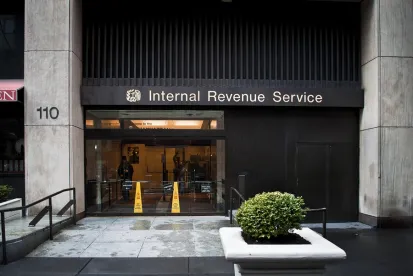Earlier this month, the United States District Court, Northern District of California approved the Internal Revenue Service’s (IRS) request to execute a “John Doe” summons on the parent company of popular cryptocurrency exchange Kraken. The order demands the company turn over records of all U.S. citizens who used the exchange to conduct transactions totaling $20,000 or more from 2016 to 2020, and it is the latest in a line of unprecedented IRS efforts to identify and audit individuals who may be underreporting their cryptocurrency and other digital assets.
IRS Commissioner Chuck Rettig, quoted in a Department of Justice press release on the matter, said: “There is no excuse for taxpayers continuing to fail to report the income earned and taxes due from virtual currency transactions. This John Doe summons is part of our effort to uncover those who are trying to skirt reporting and avoid paying their fair share.”
What is a John Doe Summons?
When a taxpayer fails or refuses to comply with an IRS investigation, one of the agency’s main tools for compelling the individual or company to produce desired records is the summons, which is similar to a subpoena. But what if the IRS has reason to believe a violation occurred, but does not know exactly who did it or who to serve the summons on? This is where the lesser-known John Doe summons comes into play.
A John Doe summons allows the IRS to obtain names and documents concerning all taxpayers in a certain group it believes may be violating tax law, often from a third party who maintains financial records for the group. For example, when the IRS suspected a law firm of helping one of its clients to avoid U.S. taxes by setting up foreign accounts in 2019, a federal judge allowed the IRS to use a John Doe summons to gather the names of the law firm’s other clients to see if the practice was more widespread. Taylor Lohmeyer Law Firm PLLC v. United States, 385 F. Supp. 3d 548 (W.D. Tex. 2019). In the case of Kraken, the IRS is not alleging any impropriety by the company itself, but that it has reason to believe some Kraken users have been underreporting.
What it Means for Crypto Owners
Kraken is currently the 4th ranked cryptocurrency exchange in the world according to CoinMarketCap. Given the exchange’s size, this John Doe summons opens a significant portion of U.S. cryptocurrency holders to the possibility of being audited, and, at a minimum, will result in an expansion of the IRS’s database of taxpayers who owned, or have owned digital assets.
A similar John Doe summons was granted in April 2021 to investigate improper reporting among users of Circle, a smaller crypto exchange based in Boston, and back in 2017, Kraken’s rival Coinbase was forced to produce tax information for 14,000 of its users. Ultimately, the IRS can be expected to use more of these John Doe summonses in the future to build its understanding of who is using cryptocurrency and who is failing to report it.
The most important thing for crypto owners is to make sure their transactions are properly reported on their income tax returns and be prepared to produce documentation of their transactions if an audit is conducted. The IRS has previously issued some guidance on these rules in a FAQ format.




 />i
/>i

